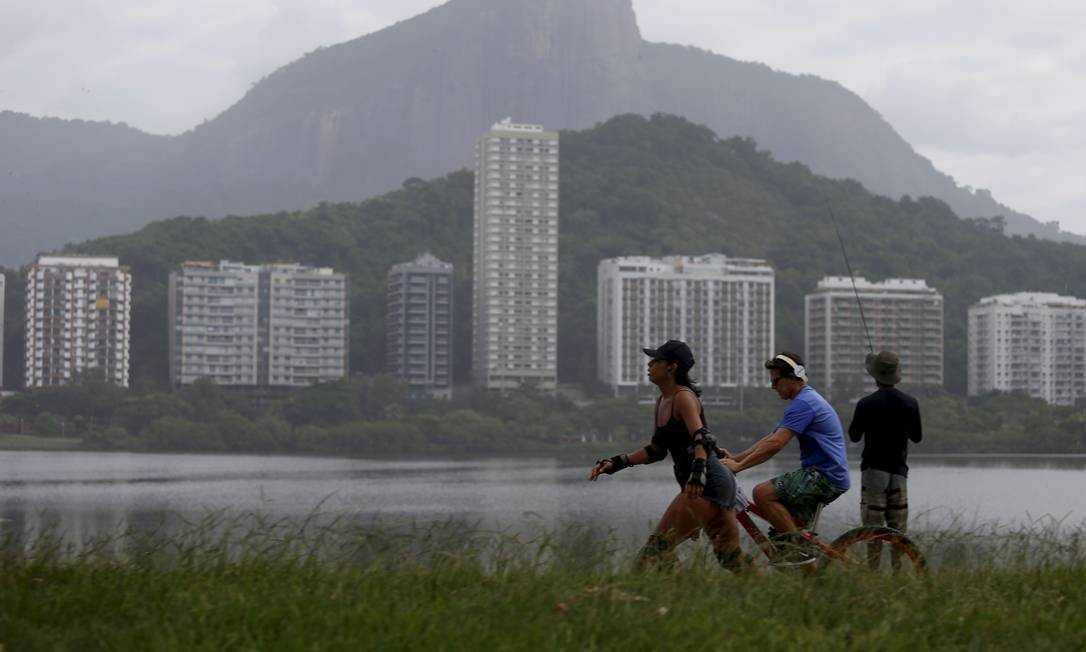RIO DE JANEIRO, BRAZIL – Close to completing one month, the social isolation established as the main strategy for tackling the novel coronavirus in several states is not part of the routine of a significant portion of the Brazilian population.
In a survey conducted between April 1st and 3rd, 28 percent of the people interviewed by Datafolha did not follow the guidelines of remaining at home.

A total of 1,511 Brazilian adults were surveyed in all regions of Brazil. The survey was conducted by telephone this time, due to the pandemic. The error margin is three percentage points plus or minus.
The result shows that 24 percent of respondents say they are being cautious due to the pandemic, but are still leaving home to work or perform other activities.
Another four percent say there has been no change in their routine, and that they are still living as they did before the crisis. It is unclear how many of these workers perform essential activities, in sectors such as food, health, and safety, for instance, that need to go out to work.
Ignoring isolation unnecessarily is contrary to the advice of most experts and the guidelines of the Ministry of Health and the World Health Organization (WHO).
But it is compatible with what President Jair Bolsonaro has been advocating, to whom quarantine should be restricted only to the elderly and other vulnerable groups. Infectologists say total isolation is essential to prevent carrying the virus into the home, for instance, where it could infect those most susceptible to severe complications in their health condition.
The remaining 72 percent of respondents said they were following the guidelines to stay home, with 54 percent saying to leave only when unavoidable, to buy food, for instance. Another 18 percent said they were in complete isolation, under no circumstances leaving home.
Confinement at home mainly hinders workers with no fixed income, particularly casual workers. As a result, many of them have risked going out in search of work, being encouraged to do so by the President himself.
In the monthly income range between two and five minimum wages, which includes many of these workers, the share of those who ignore quarantine jumps to 35 percent, with 30 percent saying they are more careful and five percent saying they have not changed their routine at all.
Datafolha also researched how concerned Brazilians are about the pandemic. The vast majority declare to be afraid of the disease. These are 77 percent in total, with 39 percent saying they are a little afraid and 38 percent very afraid, a technical scenario.
Only 23 percent said they are not afraid at all, in line with what Bolsonaro said in a TV statement, when he downplayed the risk of contracting the virus because it would just be a “flu”.
However, the majority of those interviewed considered the chance of contracting and transmitting the virus to be high. Eighty-one percent say they believe they can be infected, but the largest portion (35 percent) say the chance of it is small.
Only 17 percent believe the chances are high, according to Datafolha, 72 percent believe they have a chance of infecting another person, the same rate as those who believe that a person who lives in their home can contract the disease.
The survey also shows that for 52 percent of respondents the pandemic will cause many deaths. Among the youngest, between 16 and 24 years of age, this rate rises to 63 percent.
According to 41 percent of respondents, there will be few deaths, and six percent say they do not know. As the pictures of people jogging on the boardwalks of Rio de Janeiro’s beaches or around São Paulo’s parks showed, many still ignore the risks of the disease.
For 46 percent of respondents, Brazilians are less worried than they should be, while 33 percent consider the degree of apprehension to be appropriate. Another 19 percent say people’s concern about the disease is excessive.
Among residents of the states of São Paulo and Rio de Janeiro, the two most affected by the crisis in number of cases and deaths, pessimism is predictably more pronounced. In both areas, 52 percent of respondents believe that the population is less worried than it should be about the crisis, six percentage points above the national average.
As for the number of deaths in the pandemic, São Paulo citizens perceive a much more negative scenario than among those surveyed nationally. According to 60 percent, there will be many deaths, eight percentage points higher than the total in Brazil. In Rio de Janeiro, the rate is 55 percent.
Source: Folhapress

